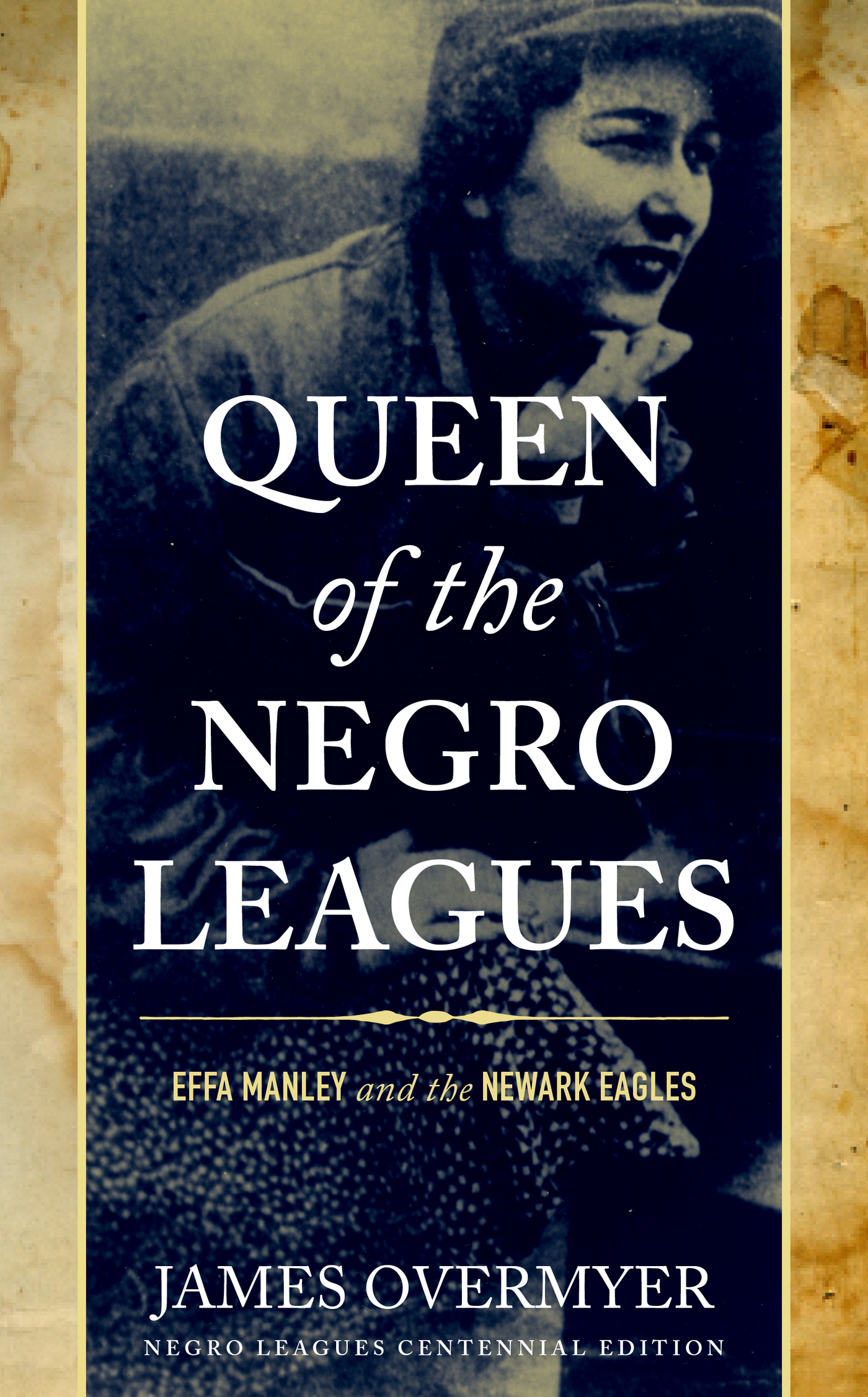Queen of the Negro Leagues
Queen of the Negro Leagues
Effa Manley and the Newark Eagles
Negro Leagues Centennial Edition
James Overmyer
ROWMAN & LITTLEFIELD
Lanham Boulder New York London
Published by Rowman & Littlefield
An imprint of The Rowman & Littlefield Publishing Group, Inc.
4501 Forbes Boulevard, Suite 200, Lanham, Maryland 20706
www.rowman.com
6 Tinworth Street, London SE11 5AL
Copyright 2020 by The Rowman & Littlefield Publishing Group, Inc.
All rights reserved. No part of this book may be reproduced in any form or by any electronic or mechanical means, including information storage and retrieval systems, without written permission from the publisher, except by a reviewer who may quote passages in a review.
British Library Cataloguing in Publication Information Available
Library of Congress Cataloging-in-Publication Data
Names: Overmyer, James, author.
Title: Queen of the Negro Leagues : Effa Manley and the Newark Eagles / James Overmyer.
Other titles: Effa Manley and the Newark Eagles
Description: Negro Leagues centennial edition. | Lanham, Maryland : Rowman & Littlefield, 2020. | Rev. ed. of: Effa Manley and the Newark Eagles. 1993, and of later edition: Queen of the Negro leagues, 1998. | Includes bibliographical references and index. | Summary: In celebration of the 100th anniversary of the Negro Leagues, this book honors the life of Effa Manley, the trailblazing female co-owner of baseballs Newark Eagles. This edition includes new details regarding the Negro Leagues, Manleys induction into the Hall of Fame, and previously unknown information about Manleys childhood and familyProvided by publisher.
Identifiers: LCCN 2019051368 (print) | LCCN 2019051369 (ebook) | ISBN 9781538139844 (cloth) | ISBN 9781538139851 (epub)
Subjects: LCSH: Manley, Effa, 1897-1981. | Baseball team ownersUnited StatesBiography. | Women baseball team ownersUnited StatesBiography. | Newark Eagles (Baseball team)History. | African American business enterprises.
Classification: LCC GV865.M325 O94 2020 (print) | LCC GV865.M325 (ebook) | DDC 338.7/61796357092 [B]dc23
LC record available at https://lccn.loc.gov/2019051368
LC ebook record available at https://lccn.loc.gov/2019051369
 TM The paper used in this publication meets the minimum requirements of American National Standard for Information Sciences Permanence of Paper for Printed Library Materials, ANSI/NISO Z39.48-1992.
TM The paper used in this publication meets the minimum requirements of American National Standard for Information Sciences Permanence of Paper for Printed Library Materials, ANSI/NISO Z39.48-1992.
To Matthew Overmyer and Peter Weiden
Foreword
The powerful and inspirational story of the Negro Leagues is one of sheer determination and devotion. Strong-willed, dedicated athletes, who simply refused to accept the notion that they were unfit to share in the joys of our national pastime. They were baseball players first and foremost, who forged a glorious history during an inglorious era of American segregation.
But, the transcending story of the Negro Leagues is not one that dwells on the social adversity the players faced, but rather what they did to overcome that adversity. These talented athletes never cried about the social injustice; instead, they went out and did something about it. Remarkably, its all based on one simple principle: You wont let us play with you; then well create a league of our own.
And, that they did. It officially began in 1920, when Andrew Rube Foster established the Negro National League in a meeting that took place at the Paseo YMCA in Kansas City, MO. The Negro Leagues would then operate for an amazing 40 years and provided a playing field for the best black and hispanic athletes to showcase their world class baseball skills.
Stars were born. Theres Cool Papa Bell, still believed to be the fastest man to ever play the game. He could circle the bases in 12 seconds. Or, the legendary Satchel Paige, who in 1948 became the oldest rookie in Major League Baseball history at the tender age of 42. Or was it 52? Only Satch knew... and he never told. Or, the prodigious power of Josh Gibson, who was often called the black Babe Ruthbut there were others, who saw Gibson hit balls where no mere mortal had ever hit them, who called Ruth the white Josh Gibson.
Negro Leagues baseball brought a level of joy to African Americans from the deep South to the heart of America to the eastern seaboard and was a catalyst for an economic growth in many urban communities. Essentially, wherever you had successful black baseball you had thriving black economies.
Its so easy to fall in love with the pride, passion, perseverance, and courage that Americas unsung baseball heroes exhibited in the face of adversity to play the game they loved. Its compelling and awe inspiring. Their love for Americas pastime would change the game and America, too.
Embedded inside the broader story of the Negro Leagues are equally fascinating, but often overlooked, stories of the owners who invested in the black baseball experience. Their impact shouldnt be forgotten. And, you certainly had your share of characters among that esteemed group of owners, too. They spanned the gamut.
Truth is far better than fiction. And, when it comes to the Negro Leagues, the tendency has been to take liberties with the story. But as my dear friend, the late, great Buck ONeil used to say, you dont have to fictionalize the Negro Leagues to make it entertaining. Just tell the truth. Its entertaining on its own.
One of those stories seemingly just too good to be true is that of Effa Manley. An incredible woman who, along with her husband, Abe, owned the Newark Eagles.
There was always a certain mystique about Effa Manley. An admired level of sophistication and savoir faire. She was poised and polished. Regal and refined. Yet, underneath that veil of social grace and grandeur was a smart and tenacious competitor with a dogged determination to win. Effa brought that tenacity to the table as she squared off, often as a lone voice, against her male counterparts.
For some owners, her business savvy ingratiated her while others were infuriated. She was considered a know-it-all who was out of her league. How dare she try to bring new ideas to an old school, good-old-boys game. After all, baseball was a mans world. Or, was it?
Oh, contraire! Quite simply, Effa knew the business of baseball as well as any man. That rubbed a lot of the fellas wrong and she didnt care. Instead, Effa went about her business of building the Eagles into a model baseball franchise. She may not have garnered their acceptance but she earned their respect.
People say, Dont live in the past. But I guess it depends on how interesting your past is, Effa would say. And, few had a more interesting past than Effa Manley: The Queen of the Negro Leagues. Beneath the complexities of her skin complexion, where even to this day, the debate rages on whether she was black or white, was a woman who was clearly comfortable in her own skin. She seamlessly and fearlessly morphed between both worlds, taking advantages of opportunities that her whiteness afforded while bringing a soulful spirit that put her at the front of social causes in the African American community.
As influential as Effa Manleys role in baseball became, her influence beyond the field was equally impressive. Her dedication to the Civil Rights Movement and social activism endeared her in Newarks African American community. Whether it was support of groundbreaking boycott efforts like the Dont Buy Where You Can't Work movement or making power moves like teaming with the Citizens League for Fair Play, where she organized a 1934 boycott of stores that refused to hire black salesclerks, Effa was a power hitter for positive change. And for the record, that Effa-led boycott led to 300 stores in Harlem hiring black clerks.
Next page
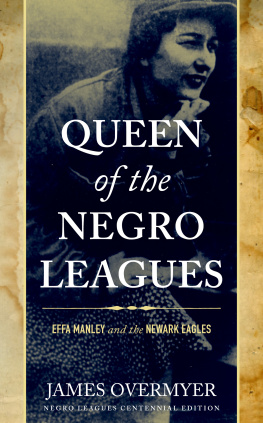

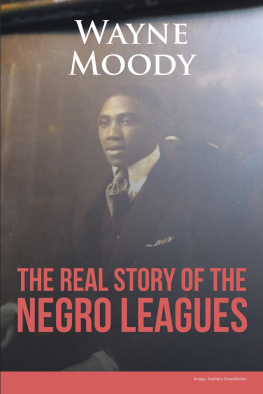
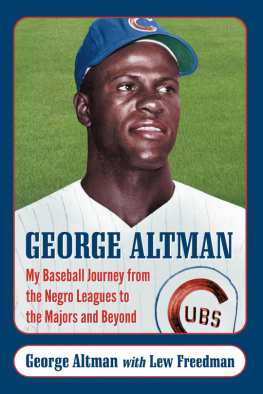
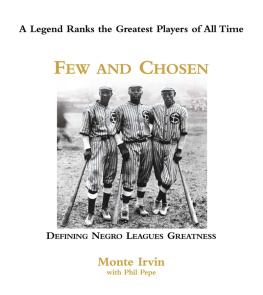
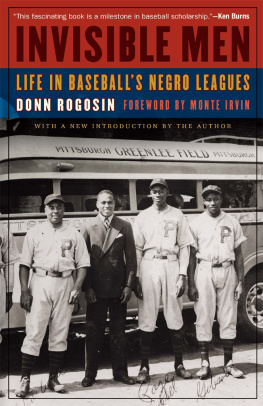
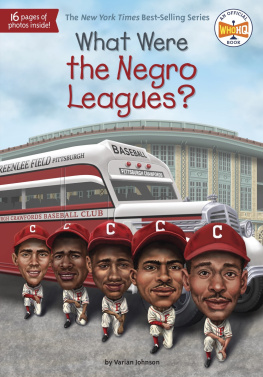
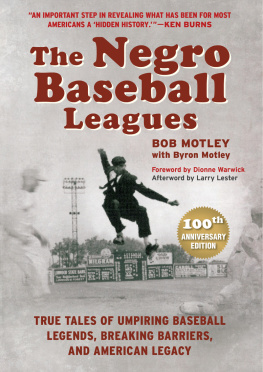
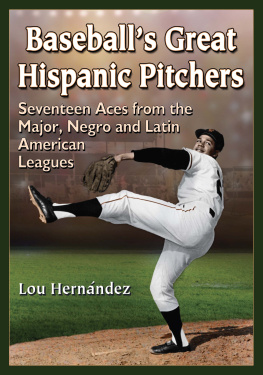
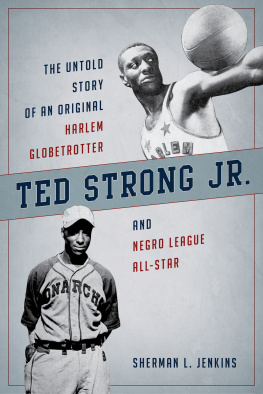
 TM The paper used in this publication meets the minimum requirements of American National Standard for Information Sciences Permanence of Paper for Printed Library Materials, ANSI/NISO Z39.48-1992.
TM The paper used in this publication meets the minimum requirements of American National Standard for Information Sciences Permanence of Paper for Printed Library Materials, ANSI/NISO Z39.48-1992.